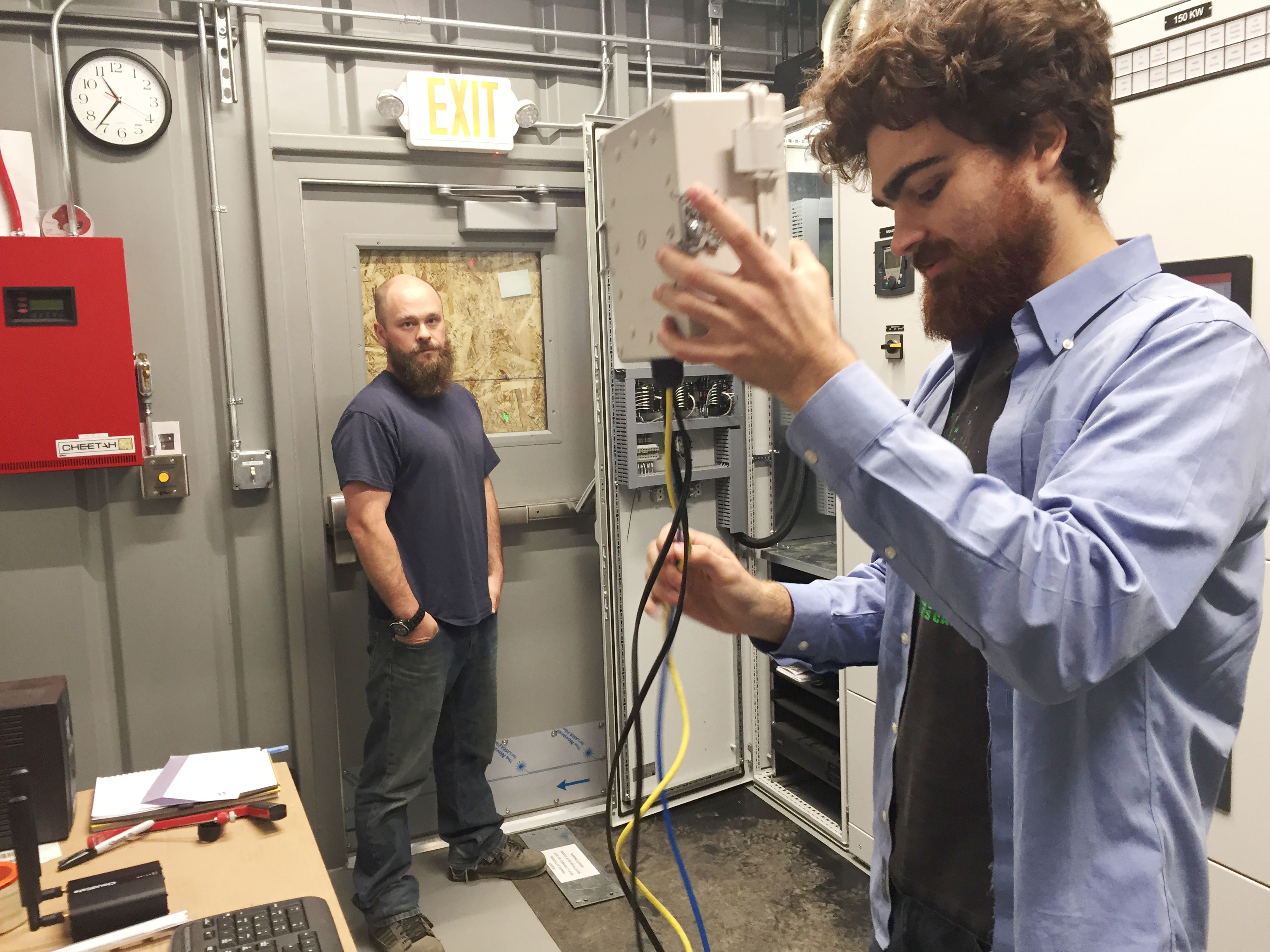ACEP Collects Realtime Data from Alaska Powerhouses

ACEP intern Henry Toal and research engineer Michelle Wilber successfully installed two ORCA instruments in new powerhouses being assembled in Anchorage for the communities of Port Heiden and Clark's Point. The ORCA instrumentation is part of ACEP's powerhouse data collection project.
The ORCA, or Onsite Realtime Collection and Acquisition, project is part of ACEP's mission to aid communities in the development and effective integration of renewable energy. It aims to create a cheap, plug-and-play solution for remote communities to provide high-resolution powerhouse data to ACEP, the lack of which has proven to be a real barrier to making informed decisions with regard to renewable energy development in rural Alaska.
Reminiscent of an exciting episode of Mission Impossible, the installation team was up against a hard deadline of September 3 - the date the powerhouses were to be packaged for shipment to their communities. Working around other technicians, coordinating with gracious Alaska Energy Authority engineers, holding emergency team meetings with computer geniuses Dayne Broderson (of ACEP) and Alan Mitchell (of Analysis North), and working long hours (mostly Henry) the team finished the last installation mere minutes before the powerhouses were shrink-wrapped for shipment.
The ORCA uses a Raspberry Pi single-board computer. It is configured to automatically collect useful powerhouse data, such as individual phase voltage, amperage, frequency, etc., directly from common powerhouse power meters, whose brand name is Shark in keeping with the nautical theme. The ORCA can collect 15 samples per minute, which are then compressed into smaller files and uploaded daily through its own cell modem, thus eliminating the need to rely on the community's internet.
The powerhouses should be delivered and powered up sometime after December, and ACEP can evaluate and troubleshoot these pilot installations as the first data (hopefully!) comes in. As this project continues, additional ORCA devices will be made and installed, which will allow communities with previously little power data available access to high-quality renewable energy analysis from ACEP.
The ORCA project is supported by the Office of Naval Research (ONR) .
Henry Toal installs an ORCA device in the Port Heiden power house under construction in Anchorage. Photo by Michelle Wilber.


